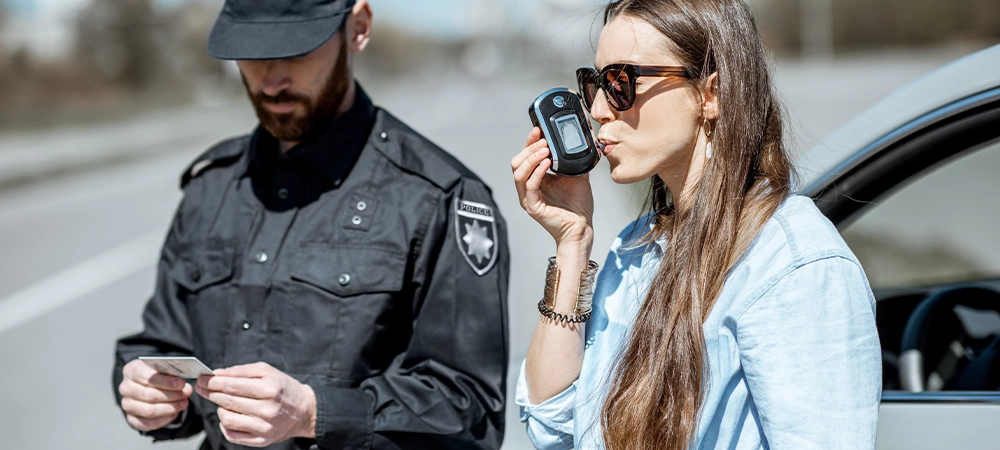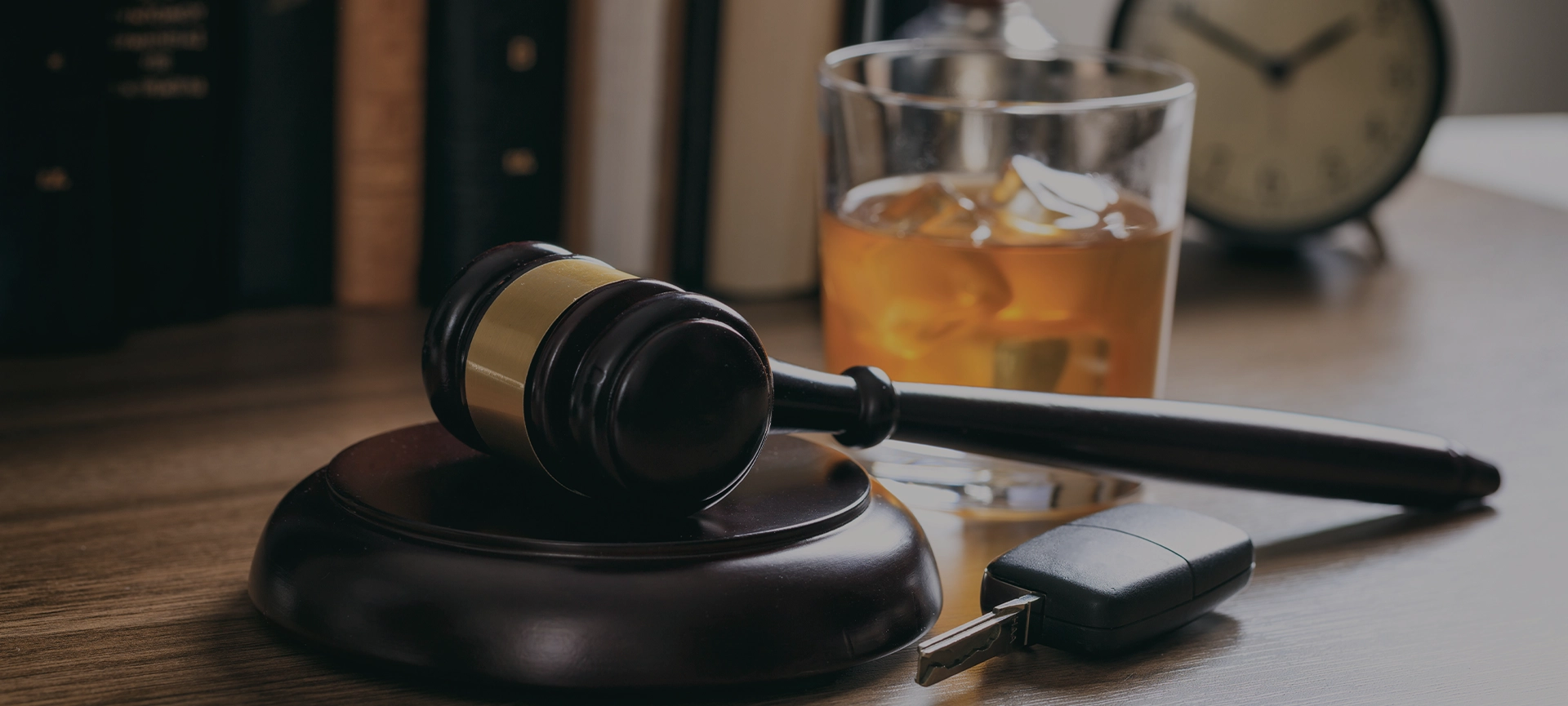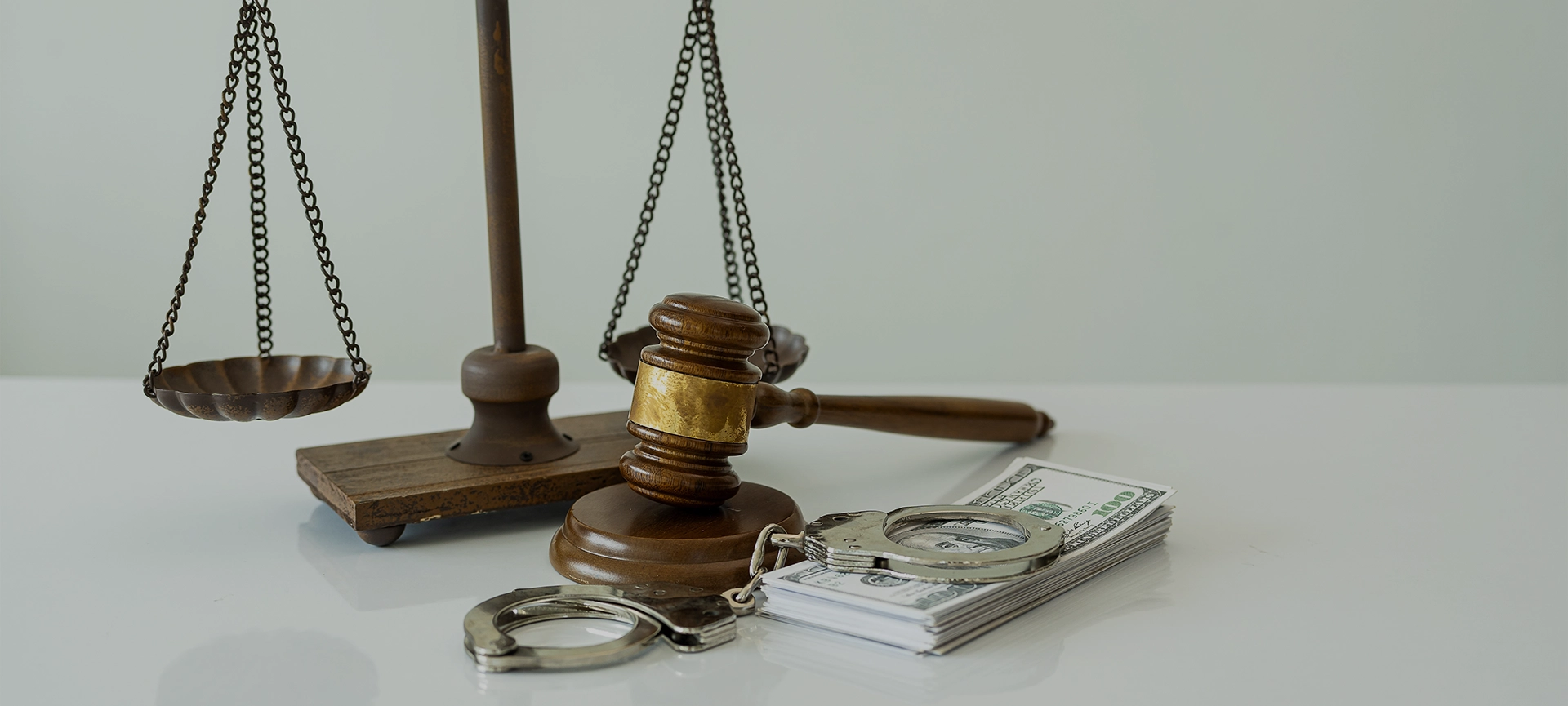Being charged with a DUI can be a daunting experience. Along with the legal consequences of driving under the influence, it can also impact your personal and professional life. This is why it’s important to know what the best defence strategies are.
The best strategy for you will depend on your specific situation. Here we look at the DUI defence strategies Ontario list so you can see which may apply to your case. A criminal defence lawyer can then use these to defend you in court.
1. Challenging the Legality of the Traffic Stop
In Ontario, police must have a lawful reason to pull you over. The authority to stop a vehicle however is very broad, police can pull you over for an infraction or simply to check you documents, or to check you level of impairment. The broad range of authority to pull you over can make it difficult to show that any initial interaction with police was unlawful.
If the police do stop you without any valid reason, for example because they are racially profiling you, any evidence they collect afterward may be ruled inadmissible. This includes breathalyzer tests. An experienced DUI lawyer will talk through the initial stop and arrest with you to ensure your rights were complied with.
Related Article: https://www.agpllp.ca/what-is-a-dui-lawyer-and-why-do-i-need-one/
2. Disputing Reasonable Suspicion Before a Breath Test Demand
Police can demand a breathalyzer test from anyone who is or has been in care and control of a motor vehicle. There are few limits to this power. The police officer however, must have a breath testing device with him to be able to demand a sample without any pre-existing suspicion. This includes stops during a RIDE check.
However, in some limited circumstances the officer must have a reasonable suspicion that a driver has alcohol in their system. This is usually through smell, slurred speech, or erratic driving. In this case, the officer needs to make the demand with sufficient grounds. If the officer saw no signs but still tested, it could lead to evidence being excluded.
3. Arguing a Breach of Charter Rights
There are a few charter violations that can be used as part of DUI defence strategies in Ontario, including:
- Unlawful detention or arrest
- Failure to inform the accused of their right to counsel
- Unreasonable delay in providing access to a lawyer
- Unlawful search or seizure, for example the police did not take the breath sample within the strict parameters of the criminal code.
These defences may lead the court to exclude the resulting evidence, including the breath tests. For those accused, this is why it’s important to give your lawyer a clear and concise version of events. This way, they’ll have more information to work with and holes to find.

4. Questioning the Accuracy of the Breathalyzer or Screening Device
Breathalyzers can be inaccurate. Due to this, they need to be properly maintained and calibrated. They also need to be operated according to strict procedures. Maintenance and calibration of the device should be logged. Also, officers need training to use one.
If any of this information is missing or incorrect, it can cast doubt on the reliability of the device. This is a complicated area of law and you will need a lawyer to help you.
Related Article: https://www.agpllp.ca/the-legal-implications-of-refusing-a-breathalyzer-test-in-canada/
5. Challenging a Delay of a Breath Test
Road side tests need to be taken as soon as practically possible. BAC can increase after the person has been stopped. If there were delays in making a breath demand, this could mean your breath was seized unlawfully and could lead to exclusion of the evidence.
7. Challenging Field Sobriety Test Results
Field Sobriety Tests (FSTs) can not be used as scientific proof of impairment. However, they can be used as supporting evidence in court. The problem with these tests is that they are subjective and can be influenced by other factors.
For example, fatigue, medical conditions, anxiety, poor weather, and uneven ground can all affect your ability to complete these tests. If one of these applied, or if the test was administered incorrectly, it can be argued that the test was unreliable.
8. Medical or Physiological Explanations
Certain medical conditions can either mimic the signs of intoxication or give a false breath test result. For example, diabetes can cause the smell of acetone on the breath. This can often be mistaken for alcohol.
Other conditions, such as GERD (acid reflux) can cause mouth alcohol and higher BAC readings. Added to these test factors, some neurological disorders may be mistaken for the effects of alcohol, such as slurred speech or poor balance.
9. Questioning the Officer
A solid DUI case can be heavily dependent on the recollection of the officer involved and their written notes. Your lawyer will closely examine these notes and look for any inconsistencies, lack of detail, or signs that rights were violated. This can then be used to cast doubt on the reliability of the case.
Related Article: https://www.agpllp.ca/do-i-need-an-impaired-driving-lawyer-for-a-1st-time-dui/
10. Demonstrating No Actual Crime
You can be charged with impaired driving even if you weren’t driving. For example, you were sleeping in the car or sitting in the driver’s seat of a parked car, you can still be found to be in care and control of the vehicle.. In these situations, the crown would have to prove that there was a risk you could have set the car in motion. This may seem like a simple area of law, but it can be very complication, you must have a lawyer expertise to give yourself the best chance of winning your case.

FAQs
Can I refuse a breathalyzer test?
The short answer is, no.. If you refuse, you will be charged with a criminal offence and be subject to the same punishments as if you were proven to be driving over the limit. Always give a breathalyzer test when requested. If you feel it’s an unlawful request, you can fight this later in court.
What happens to my licence after a DUI arrest?
Your licence will be automatically suspended for 90 days. Further suspensions can then be applied depending on the circumstances and the outcome in court.
How long does a DUI stay on my record in Ontario?
A DUI conviction results in a permanent criminal record. However, you can request a record suspension after a minimum of 5 years from the expiry of your sentence (and payment of any fines). This will remove it from any active criminal search.
Can a DUI be reduced or dismissed?
If the case against you is weak, your lawyer may be able to negotiate a lesser charge, usually careless driving. If there have been procedural errors or rights breaches, your case may be dismissed.
Do I need a lawyer for a first-time DUI charge?
Yes. Even first-time offences can have significant consequences. A DUI lawyer will give you a better chance of reducing or avoiding a conviction.
Final Thoughts
DUI cases can often feel like a lost cause. However, even if you’re shown to be over the limit, being convicted is far from a foregone conclusion. An experienced DUI lawyer will find holes in your case and work on one of the defences you’ve read here.
The key is finding an attorney who knows DUI laws inside out. If you’re in need of legal representation, contact AGP LLP today. We’ll be happy to offer you a free consultation to see how we can help to fight your DUI charge.





